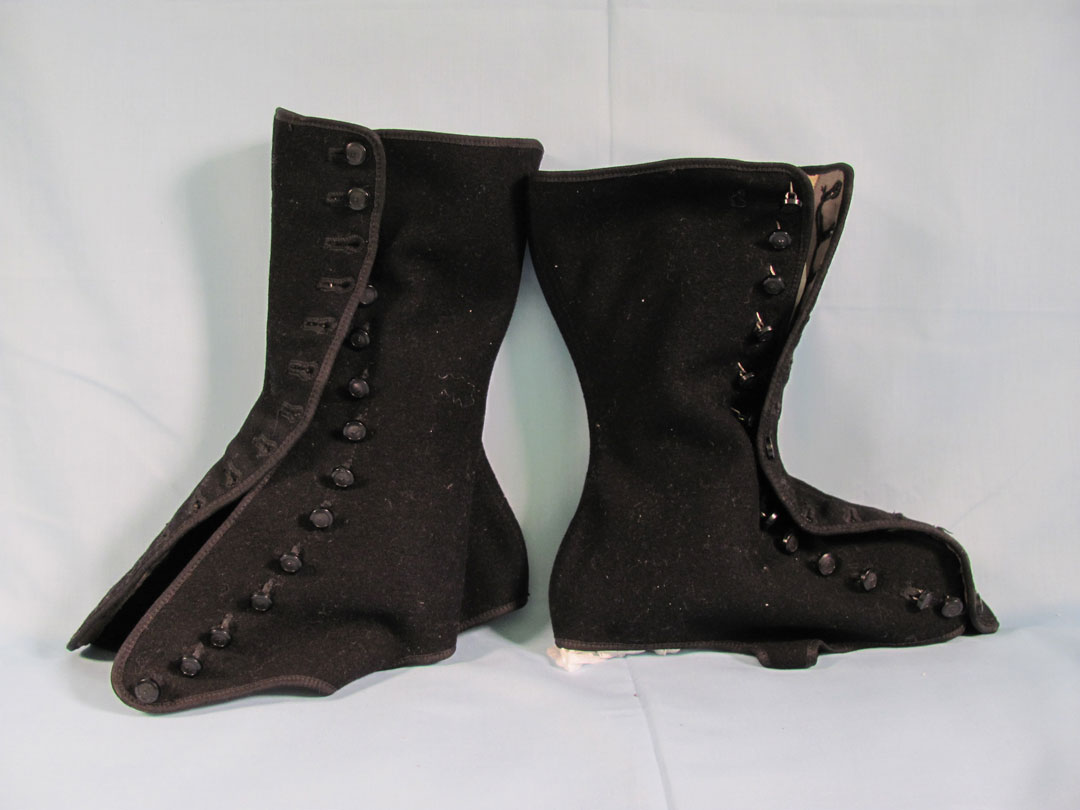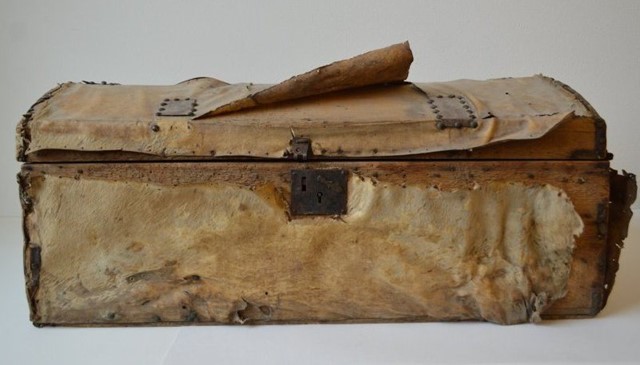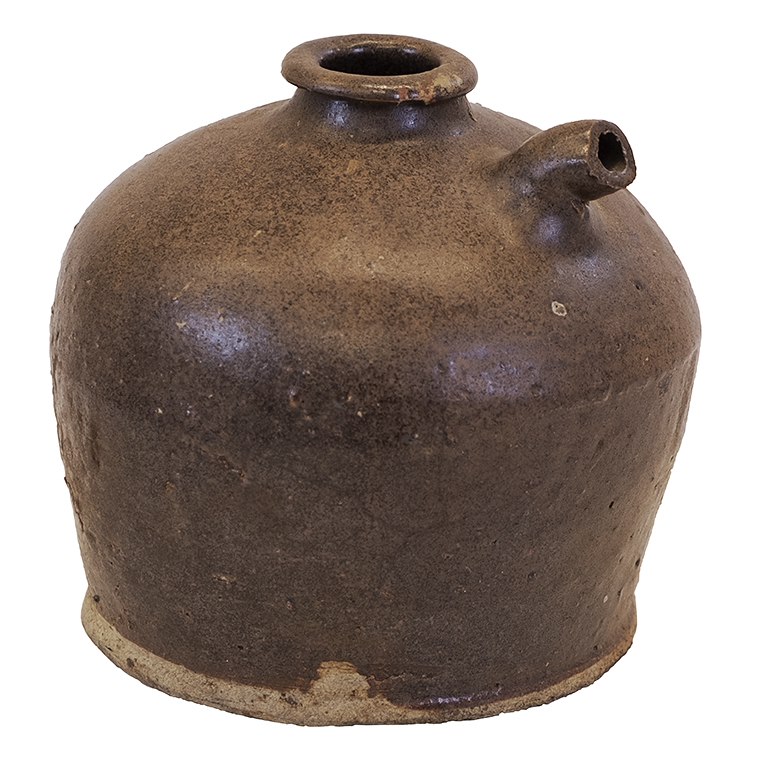Holiday time has often meant events such as concerts, parties, and weddings. Until the late 1920s, a well-dressed man attending these events would need these items from the Benton County Historical Society’s collection.
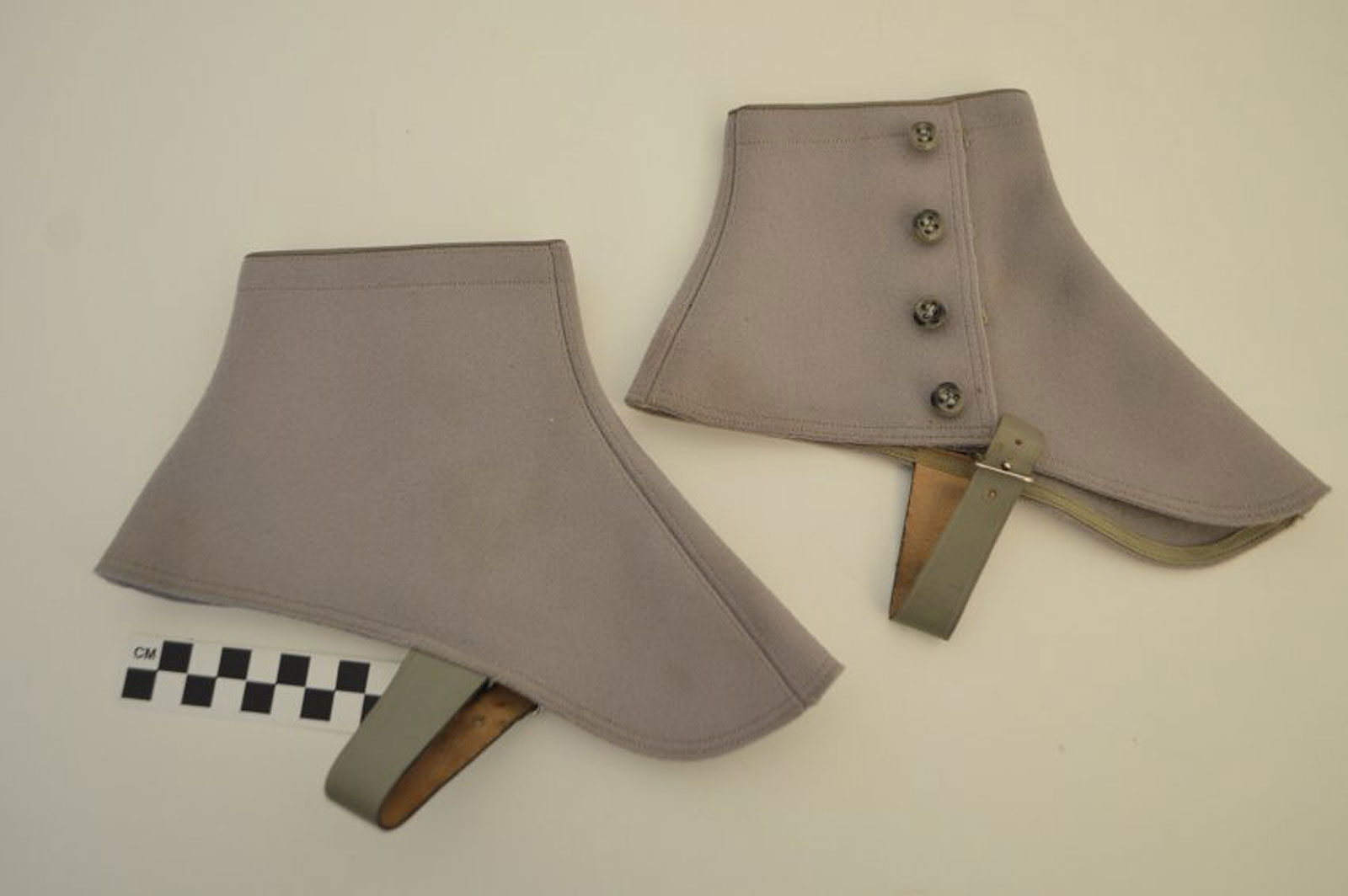
These spats cover the top of one’s shoes up over the ankle and fasten underneath the sole. “Spats” – short for spatter-dashes or spatter-guards– originated in the military to keep shoes free from sand or mud. Gaiters, which serve the same purpose, are taller and cover the lower section of the wearer’s trousers.
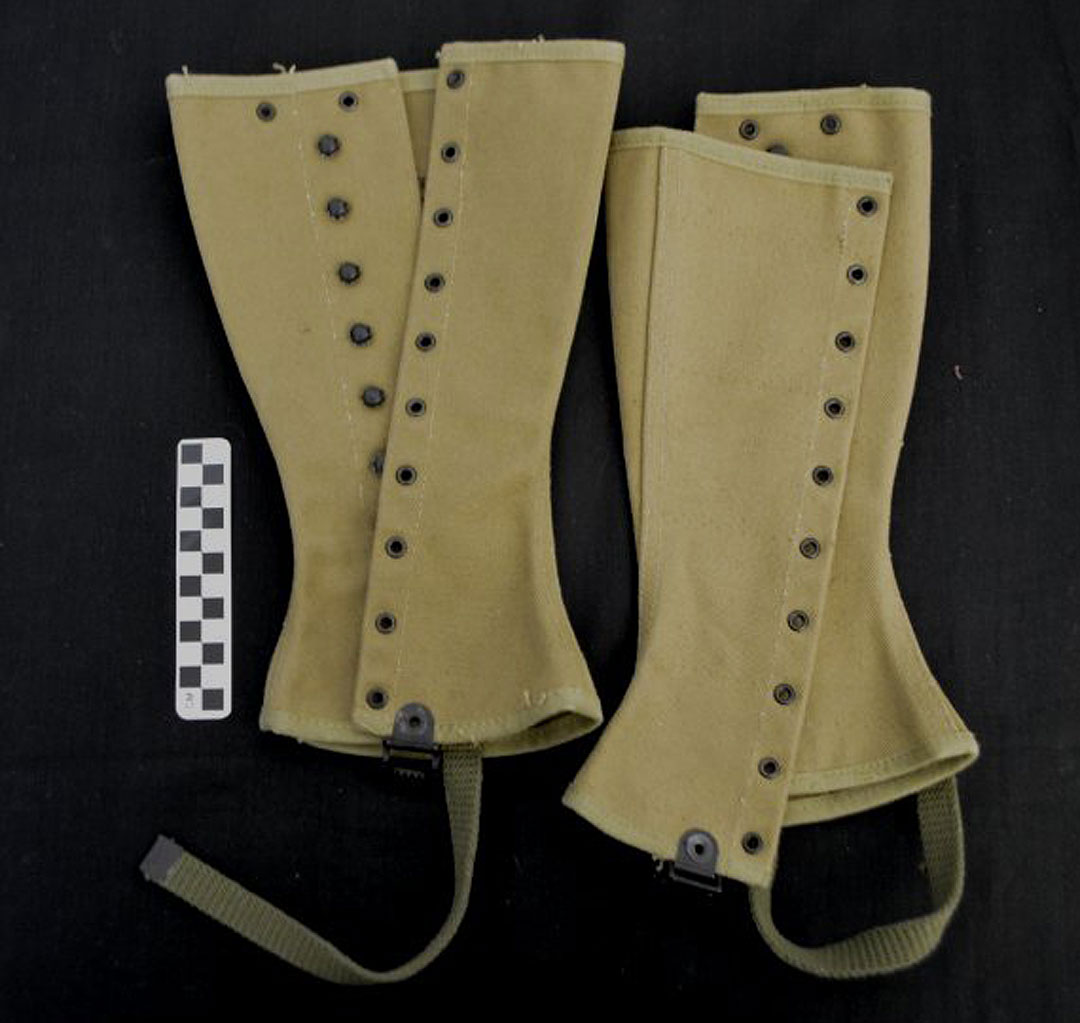
During the late 19th and early 20th century, spats became an item of men’s fashion and a symbol of elegance. They came in different colors- primarily black, white, and gray– which fashion dictated should match the color of one’s gloves.
After 1926, when England’s King George first appeared in public without spats, their use gradually declined. Increasingly, they were reserved for special occasions. The spats shown above were worn by donor Dwight Curtis Mumford on his wedding day, September 28, 1929.
Although generally associates with male fashion, spats were also worn by women, especially when needed to protect from mud. These “Tweedies Bootops” date from around 1915.
